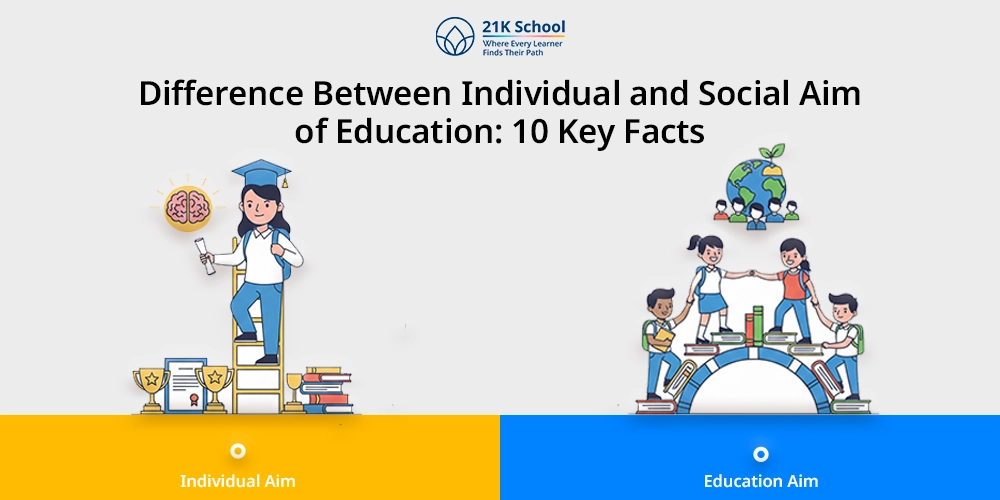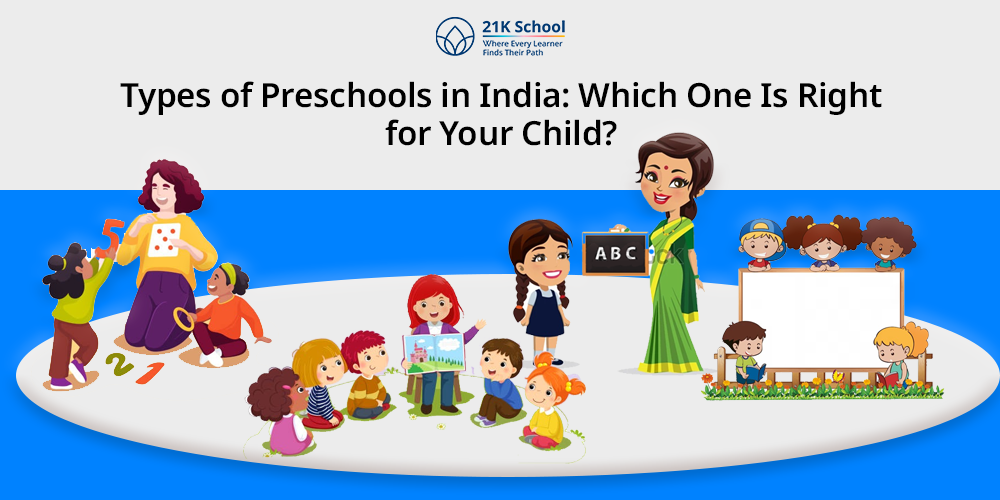
Do you know why Preschools are getting popular in India?
Preschools are getting popular in India because of their growing demand, which allows kids to explore the world at an early age. Preschool is a great way to provide kids with opportunities to explore and learn new things.
In India, there are various preschools which provide students with interactive and fun in learning approaches to provide them with early education. Preschool programs are best for children who are between the ages of 3 to 5. This program helps them develop cognitive skills in kids.
The multiple types of preschools in India meet the diverse needs and learning styles of students, allowing them to learn in a playful way. During this stage, kids are being exposed to new ideas, developing social emotional learning and adjusting to being away from their parents.
Parents’ support, guidance and encouragement also play an important role in enhancing the confidence and attention among kids.
Contents
What is Preschool?
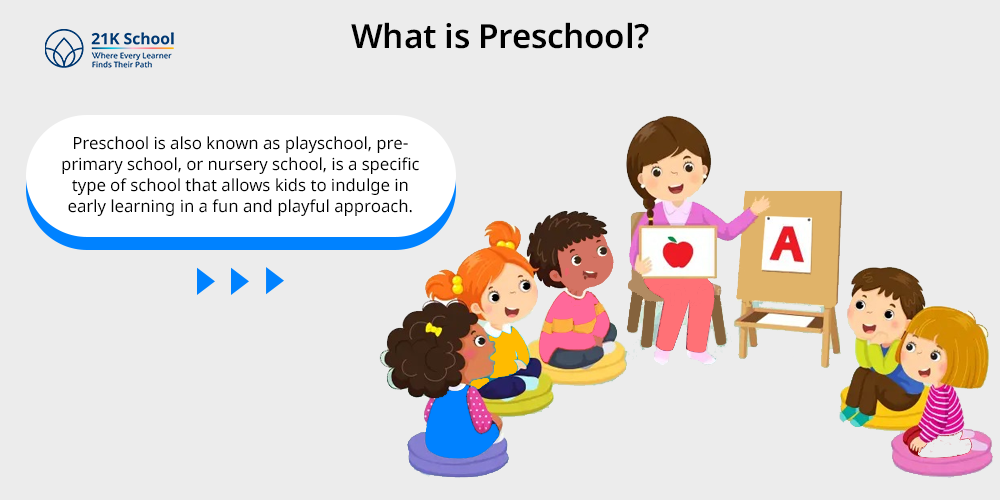
Preschool is also known as playschool, pre-primary school, or nursery school, is a specific type of school that allows kids to indulge in early learning in a fun and playful approach. Preschool is an educational program designed for kids between the age group of 3 to 5 years.
At preschool, kids not only learn numerics or alphabets but also socialise with others. This helps them to develop collaboration skills and promotes creative thinking skills . Nursery schools allow kids to start understanding the basics of education and allow them to develop an interest towards education.
Early childhood programs create a strong foundation which enhances their future learning experience. Preschool learning focuses on developing fine motor skills as well as gross motor skills .
There are many different types of play-based learning experiences that preschool programs encourage, including opportunities for both solo and group play as well as indoor and outdoor play. Because of these varied experiences, kids can follow their own interests and develop at their own speed.
Top 10 Types of Preschools in India
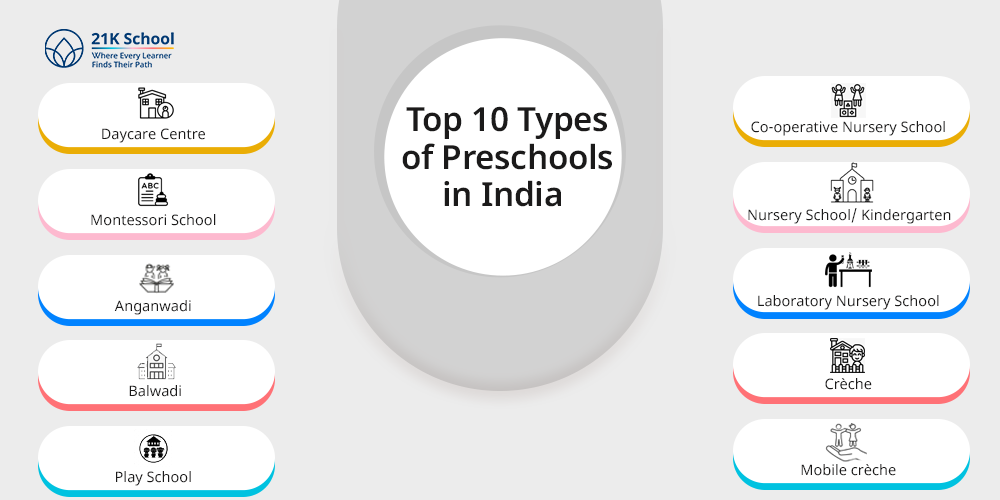
In India, there are various preschools, and every preschool has their own learning style and objectives. Most preschools focus on a playful approach, which enables them to develop a positive learning environment for students.
Early education enables kids to develop social skills and enhances student engagement through interactive class sessions. In India, most preschools are government approved and funded, which gives them global recognition. The types of preschools are mentioned below.
1. Daycare Centre
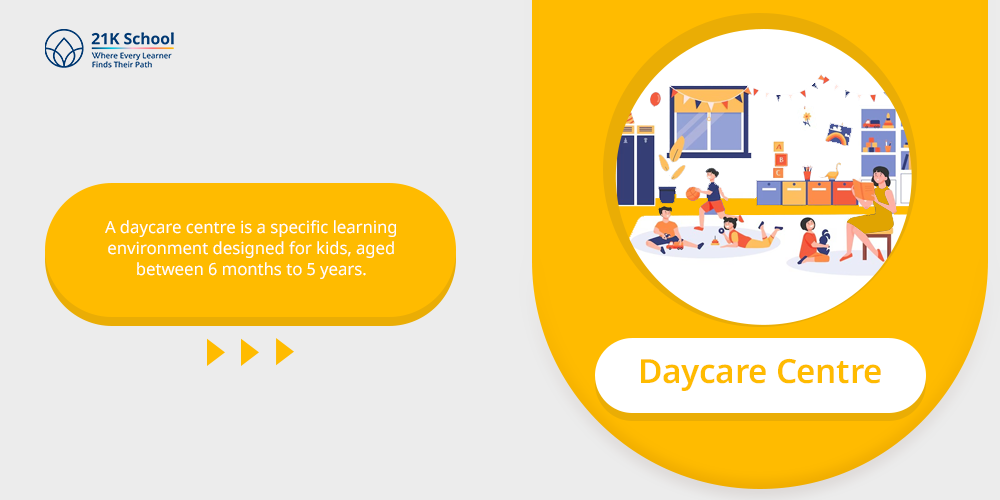
A daycare centre is a specific learning environment designed for kids, aged between 6 months to 5 years. Daycare centres create a safe and positive learning environment for kids.
The daycare centre provides a wide range of play-based learning activities for both indoor and outdoor, which enables kids to play solo or in groups. Through this program, children can follow their own interests and grow at their own pace.
Along with other essential developmental activities, these centres focus on early learning, play and socialisation. Daycare centres are best for parents who are working, as they provide proper care and protection to kids.
2. Montessori School
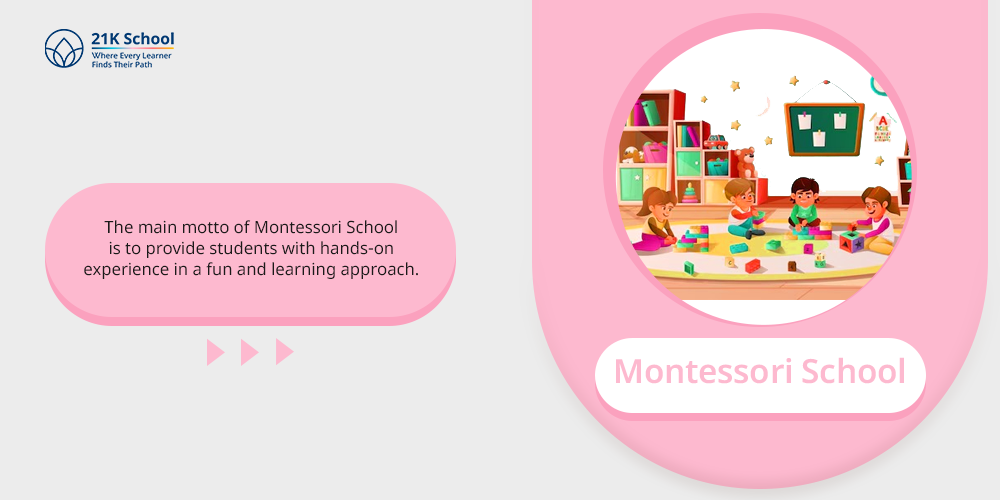
Montessori schools are popular schools which use Montessori teaching methods that emphasize student centered learning . This method of learning was created by Dr. Maria Montessori, which focuses on early childhood education and self-directed learning.
The main motto of Montessori School is to provide students with hands-on experience in a fun and learning approach. The Montessori method helps kids to enhance their problem-solving skills and gives them independence to explore on their own which promotes curiosity.
Montessori schools provide students with holistic education , enabling them to study through playful activities. Montessori classes are also focused on developing collaborative learning among kids through mixing students of different ages into a single class.
3. Anganwadi
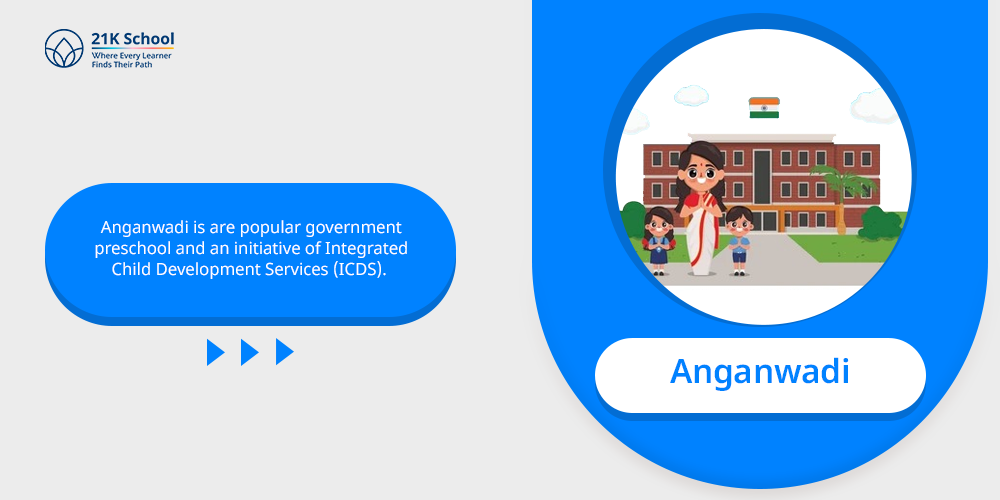
Anganwadi is are popular government preschool and an initiative of Integrated Child Development Services (ICDS). Anganwadi centres focus on the holistic development of students especially in rural areas.
The main aim of Anganwadi is to provide kids with good quality education, food, medical facilities, and so on. Anganwadi centre’s are primarily for students aged between 6 months to 6 years.
This program particularly targets children who belong from underprivileged communities or low-income families. Anganwadi also acts as a community program which educates parents about the education, health and nutrition of children.
4. Balwadi
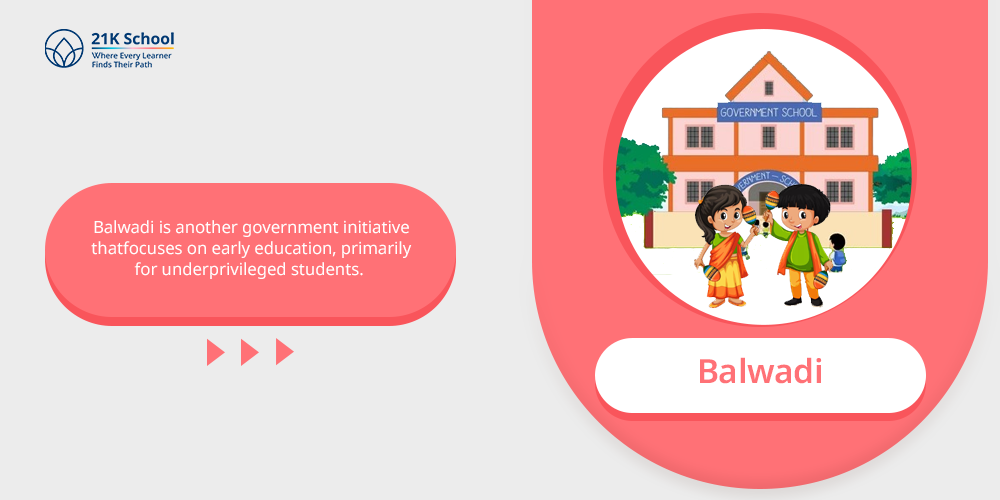
Balwadi is another government initiative that focuses on early education, primarily for underprivileged students. Balwadi integrates community-based programs such as dance, song, games, etc., to promote social skills among kids.
Balwadi focuses on basic literacy, social skills, and numeracy through interactive and fun learning approaches. Balwadis are also run by local governments and NGOs, which include community engagement.
The main motto of Balwadi is to provide education to students who are from disadvantaged groups or are from low-income families. This program emphasises early education and development opportunities for kids.
5. Play School
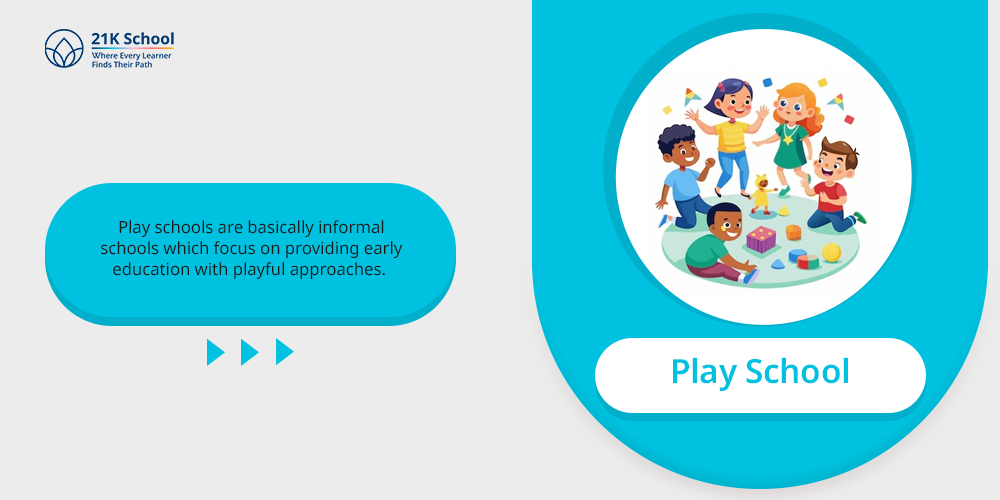
Play schools are basically informal schools which focus on providing early education with playful approaches. Playschool uses toys, games, music, art, storytelling, and other fun learning activities for kids.
Basically, playschool includes students of age between 1 to 4 years. Playschools provide a relaxed environment free from the pressures, where children can explore, engage with others and learn basic skills.
Play schools focus on creativity and imagination, which creates an early foundation for kids. Playschool contains various schools such as Kidzee, Bachpan, Eurokids, Sunrise, and so on.
6. Co-operative Nursery School
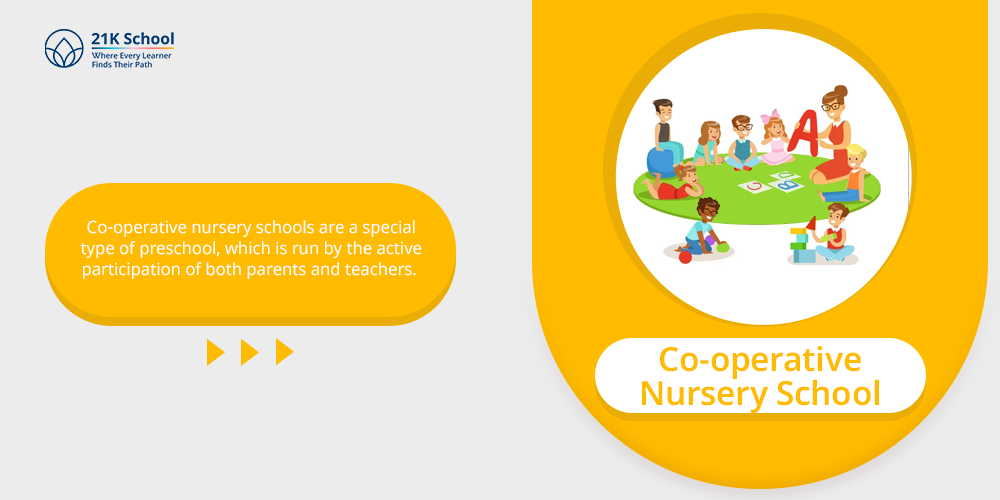
Co-operative nursery schools are a special type of preschool, which is run by the active participation of both parents and teachers. This type of school mainly focuses on collaborative learning, enabling both parents and teachers to create a community learning environment.
These types of classes promote inclusive education , encouraging students to share their learning objectives.
This program helps in promoting shared responsibilities and expose kids to a variety of teaching methods . This cooperative strategy contributes to the improvement of the relationship between educators and families.
7. Nursery School/ Kindergarten
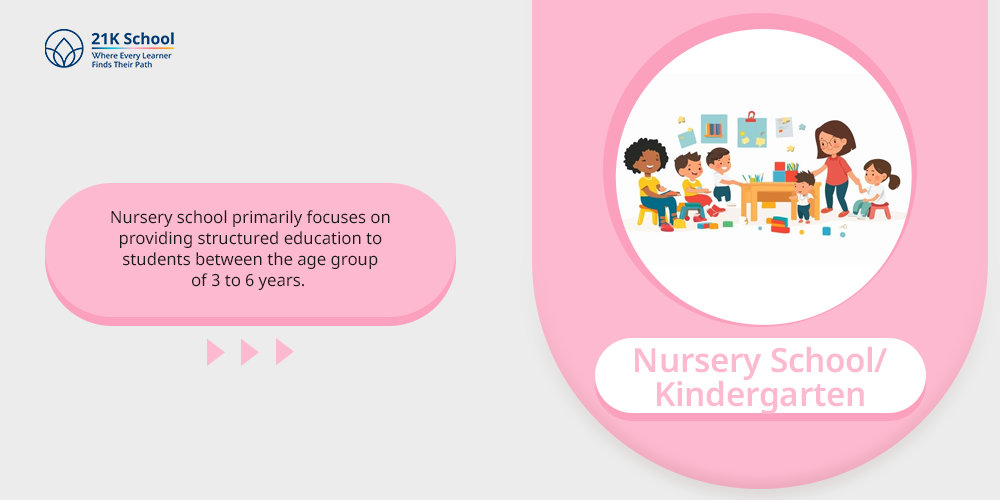
Nursery school/ Kindergarten is the most common type of preschools in India. Nursery school primarily focuses on providing structured education to students between the age group of 3 to 6 years.
Nursery school focuses on formal education, enabling children to learn literacy, maths, social skills and enhance communication skills .
Nursery school prepares students for primary education through creating a structured learning environment. Nursery schools/ Kindergarten also focuses on socialisation of students through group activities.
8. Laboratory Nursery School
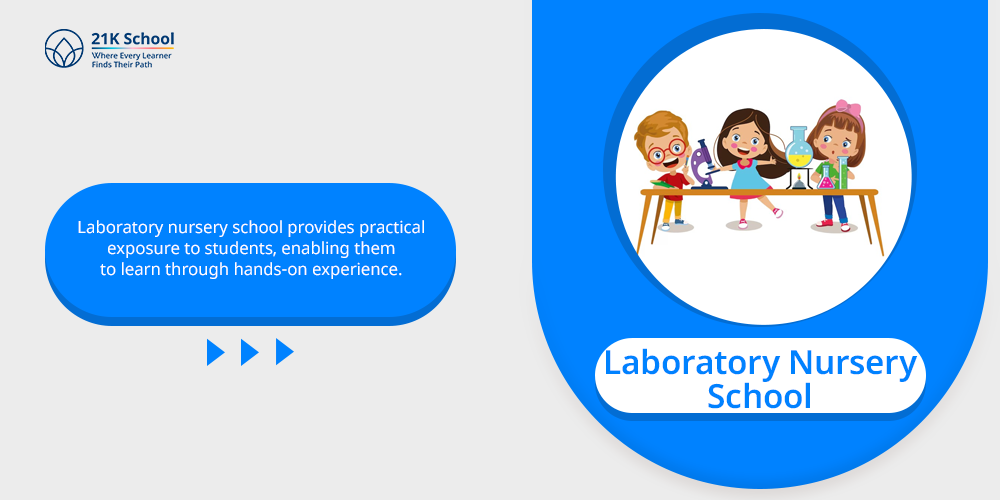
Laboratory nursery school provides practical exposure to students, enabling them to learn through hands-on experience. This program is usually for children between the age group of 3 to 6.
Through practical exposure teachers can observe and engage with young children in a real-world environment. The curriculum designed for laboratory nursery school allows children to practice and innovate through experiments and playful approaches.
9. Crèche
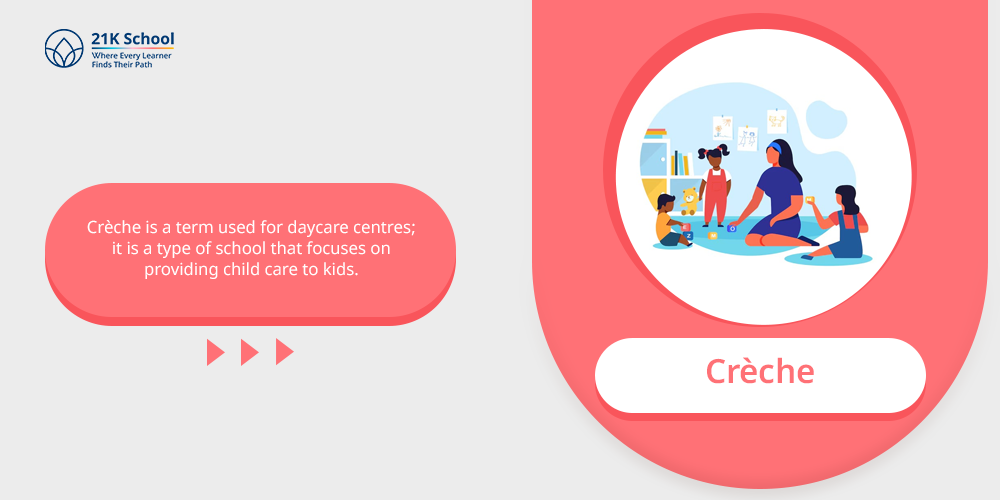
Crèche is a term used for daycare centres; it is a type of school that focuses on providing child care to kids. This program is beneficial for parents who are working and need some time.
Crèche provides a safe and secure environment for kids to be looked after while their parents are at work. Crèche provides support to kids, including basic care, meals, nutrition, etc.
The main aim of Creche is ensuring the safety and well-being of children, which gives flexibility to parents to manage their work and family responsibilities.
10. Mobile crèche
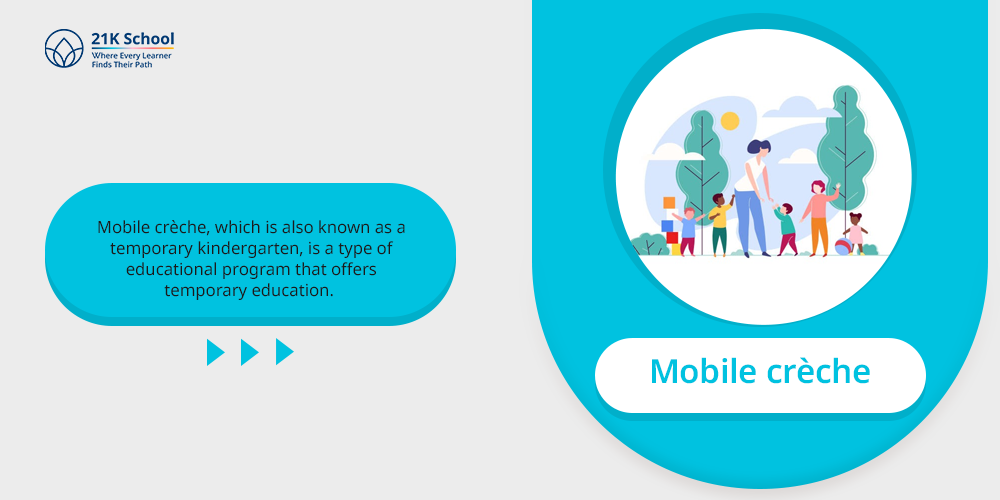
Mobile crèche, which is also known as a temporary kindergarten, is a type of educational program that offers temporary education. Mobile crèche is basically for children who are migrants and travel to different locations.
As the name denotes mobile crèche also travels from one location to another, gives flexible learning opportunities to students. Mobile creche makes sure that every student should receive quality education irrespective of any challenges.
Mobile crèches are essential for closing educational gaps for disadvantaged kids and fostering social inclusion because they tackle the problems associated with mobility.
Conclusion
Preschools’ rising popularity in India is indicative of a major shift in the country’s understanding of the value of early childhood education.
With so many different kinds of preschools offering distinct learning styles and settings, parents can select the one that best suits their child’s developmental requirements.
Daycare facilities, Montessori schools, and government programs like Anganwadi and Balwadi are all essential for supporting young children’s cognitive, social and emotional development.
Preschools give kids a foundation for lifelong learning , enabling them to explore their interests and acquire critical thinking skills in addition to preparing them for formal education.
The importance of preschools in influencing the future of India’s youth is expected to grow as more people become aware of the advantages of early childhood education.

